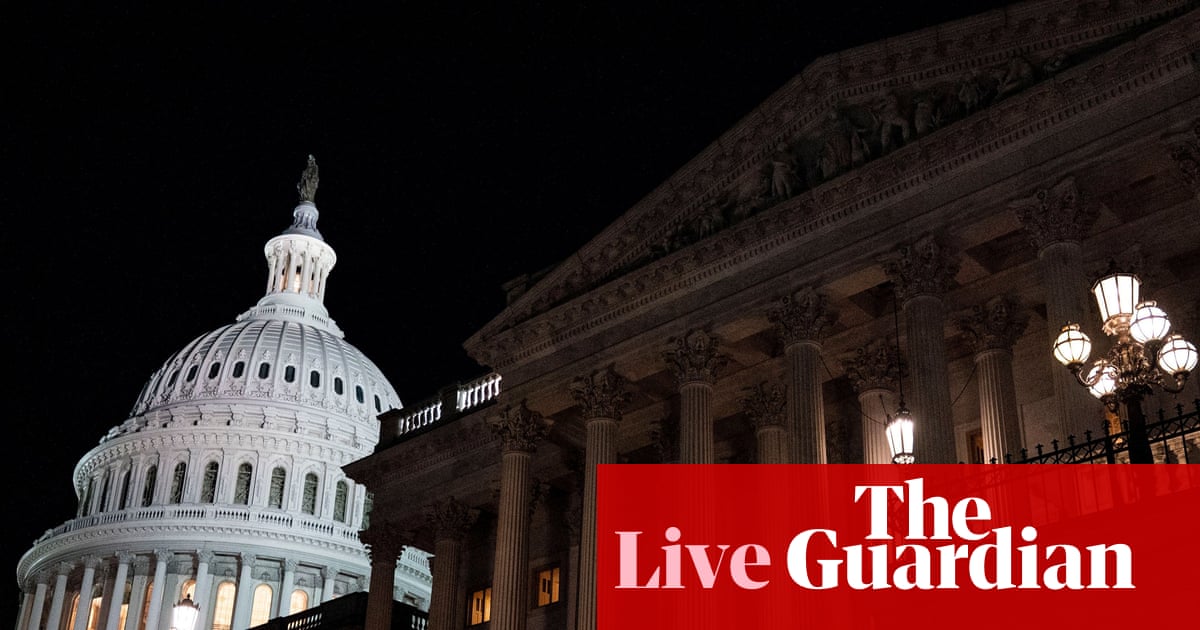The US Senate approved a bipartisan compromise on Monday that would end the longest government shutdown in US history. The measure passed 60-40, with nearly all Republicans and eight Democrats voting to advance the package. The bill now heads to the House, which is expected to vote on the measure on Wednesday; Speaker Mike Johnson urged members to begin returning to Washington “right now” to complete the process.
What the bill does
– The stopgap funds the government through the end of January.
– It reverses firings of federal workers carried out after the shutdown began.
– It provides back pay for federal employees, including military personnel, border patrol agents and air-traffic controllers.
Who voted for it
Seven Democrats — Catherine Cortez Masto, Dick Durbin, John Fetterman, Maggie Hassan, Tim Kaine, Jackie Rosen and Jeanne Shaheen — and independent Angus King joined Republicans to advance the bill. Several of the Democrats who supported the move are moderates or retiring members; none of the eight who voted to advance the package face re-election in 2026.
Health subsidies left out
The compromise does not include an extension of the Affordable Care Act tax credits that Democrats had demanded. Democratic leaders and progressive groups criticized the omission and the defections. An effort led by Senator Tammy Baldwin to extend the expiring tax credits in a separate vote was blocked along party lines.
Reactions within the Democratic party
Progressive activists and some House Democrats called for Senate Minority Leader Chuck Schumer to step aside, arguing he failed to keep the caucus unified. MoveOn urged Schumer to resign, calling the vote a surrender. House Minority Leader Hakeem Jeffries publicly defended Schumer, saying he should remain party leader.
Defending the breakaway senators
Senators who broke ranks defended their votes, saying reopening the government was urgent to stop harm to federal workers and beneficiaries of programs such as SNAP. Maggie Hassan urged Republicans to negotiate on ACA subsidies now that the government would be open. Angus King said ending the shutdown opened an opportunity to negotiate.
Next steps
Because the bill was amended in the Senate, it must return to the House for final passage before going to President Donald Trump’s desk to be signed. If approved by the House and signed, it would bring an end to the shutdown, though procedural and travel logistics mean the shutdown could continue for a few more days while members return and vote.
Broader context and related developments
– Speaker Mike Johnson said he would call the House back to session as soon as the Senate holds its final vote and indicated he would swear in newly elected Democratic representative Adelita Grijalva once the chamber returns. Grijalva is expected to be the 218th signature on a petition that could force a House vote on releasing files related to Jeffrey Epstein.
– The shutdown has caused widespread disruption to air travel, with thousands of flights cancelled and many more delayed after air traffic controllers and other staff worked without pay. The FAA warned it was reducing capacity at some busy airports because of workforce shortages.
– The Trump administration appealed to the US Supreme Court to keep Supplemental Nutrition Assistance Program (SNAP) payments frozen during the shutdown, following a federal appeals court order requiring full funding of November benefits. The high court was expected to rule on the issue.
– President Trump said he would “abide by the deal” if the Senate package reached his desk and repeatedly criticized Senate minority leader Chuck Schumer in interviews.
– The administration faced other controversies and actions: Trump sought Supreme Court review of a $5m verdict in the E. Jean Carroll defamation/assault case; he issued full pardons to dozens of allies accused of attempting to subvert the 2020 election; and his officials said the US conducted lethal strikes on two alleged drug-trafficking vessels off South America, killing six people.
– In foreign policy and trade, Trump hosted Syrian interim President Ahmed al‑Sharaa at the White House and said the administration was working with Switzerland on tariff negotiations.
– A Guardian report said the US sent $7.5m to Equatorial Guinea to accept noncitizen deportees, using funds from a migration and refugee assistance account.
– Health policy: HHS Secretary Robert F. Kennedy Jr. announced the removal of boxed warnings on some hormone replacement therapies, citing updated evidence and aiming to increase access for menopausal patients.
– Courts: The US Supreme Court agreed to hear Watson v Republican National Committee, a case about whether states may count mail‑in ballots that arrive after election day if they were mailed before the deadline. Separately, the court declined to hear a challenge seeking to overturn the constitutional right of same‑sex couples to marry.
– Media dispute: Trump threatened legal action against the BBC over a Panorama documentary edit and welcomed resignations of senior BBC figures after criticism of the program’s editing.
Political fallout
The bipartisan Senate move split Democrats and energized both criticism and defense across the party. Supporters said it was the only viable way to reopen the government and resume negotiations on outstanding issues; critics argued it abandoned key Democratic priorities, especially health‑care protections for millions who rely on ACA subsidies.
What to watch
– Whether the House will pass the Senate’s amended bill and how quickly members can return to vote.
– Follow-on negotiations over the expiring ACA tax credits during the government’s funded period through January.
– The Supreme Court’s pending decisions on SNAP funding and the mail‑in ballot case, which carry implications for millions of Americans.
If the House adopts the Senate deal and President Trump signs it, federal agencies would resume funded operations through January, federal employees would receive back pay, and immediate travel and service disruptions tied to the shutdown would begin to ease.


